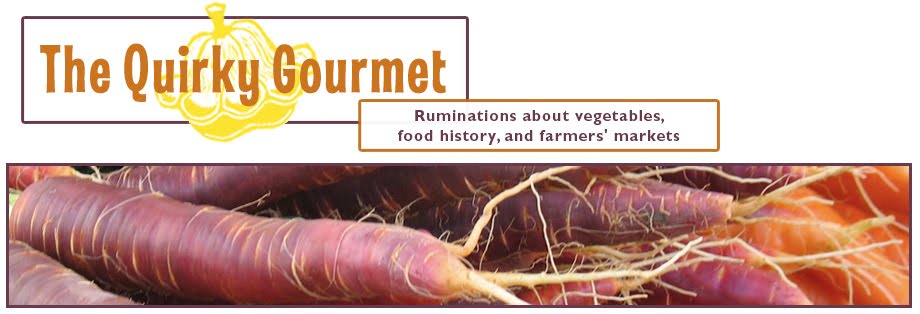
This is my friends' farm in upstate New York, about an hour west of Albany, where I spent some time last week. They have about 80 acres, and they're growing food on a few of them, and hay on 50 more. There's also woods, a house, a barn, and areas for goats and fowl.
The soil there is tired. They knew that when they bought the place, and they've got a long term plan for making it better. They're thinking in terms of 20 years, and they started 7 years ago. They're using hay as fertilizer, among other things. They grow 50 acres of hay, and it's still barely enough to nourish 2 acres of tired ground. But it's a long term plan.
I asked why the soil was so depleted, and they said it was from long term, intensive use. The farmers I know in Washington state are working plots that have been farmed for at most 150 years. This land in upstate New York has been farmed for at least 300 years.
I read recently about a period in the history of upstate New York, lasting up until about 1840, when practically all of the farmland in some areas was owned by a small number of wealthy families who had inherited a virtually feudal arrangement from their Dutch ancestors. Tenants paid exorbitant rent and were expected to perform additional duties for the landlord, such as working in their fields. It was nearly impossible for the average farming family to get far enough ahead to buy land.
I wondered if this history had something to do with the land's exhaustion. Later in the week I visited family in southern Vermont, which has a considerably more vibrant agricultural landscape. Vermont doesn't have the same history of feudal sharecropping, so the land isn't as tired.
When my friends first bought their farm, they thought that at some point they might grow food and sell it. As they've gotten settled and worked through several growing seasons they've become convinced that farming for a living doesn't make sense for them financially. They're growing food mainly to meet their own needs, and they're building the soil.
I'm can't imagine that this long term approach to building the soil is actually going to make sense financially, either. But that's a problem with the financial calculus rather than with the process of building the soil.



